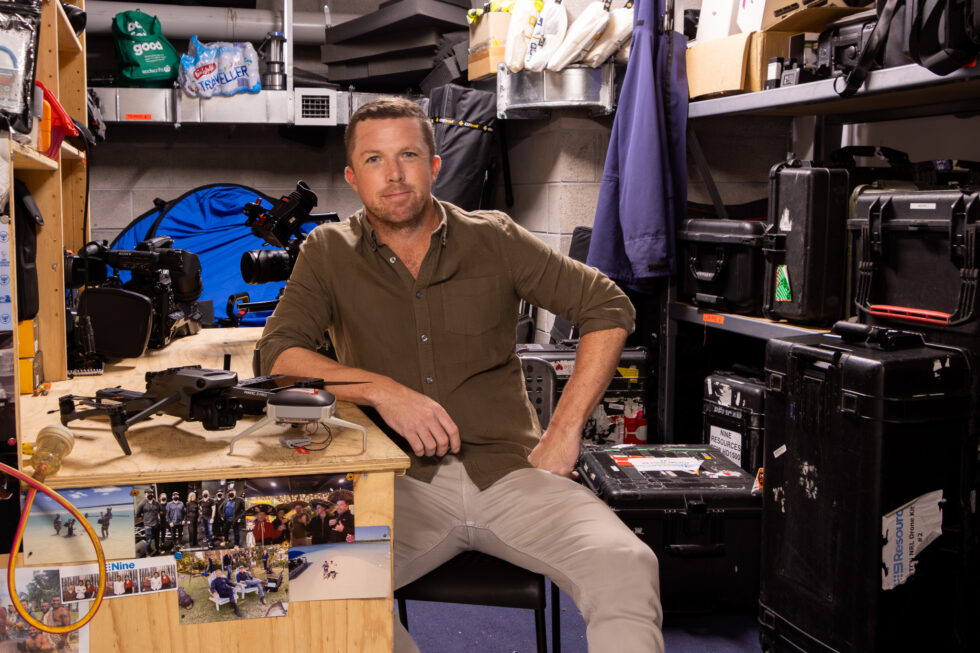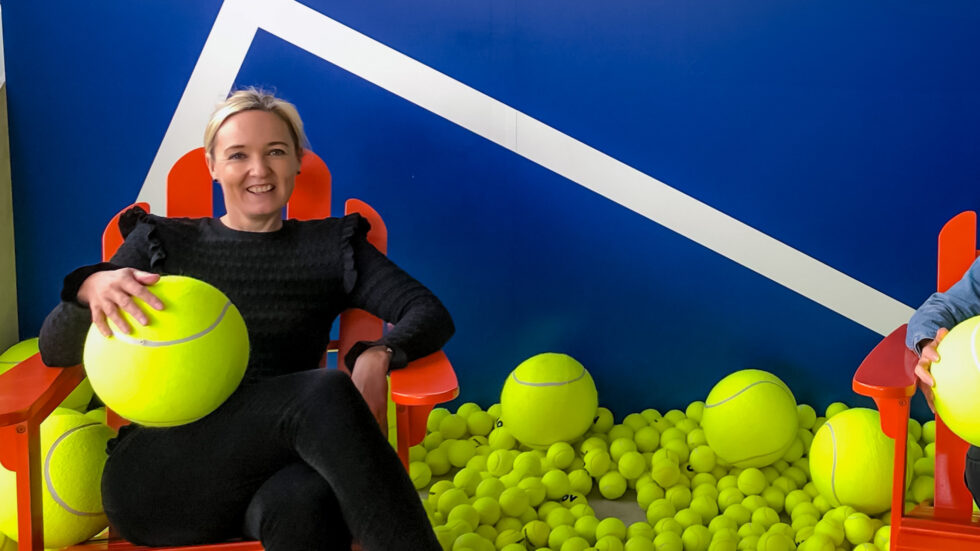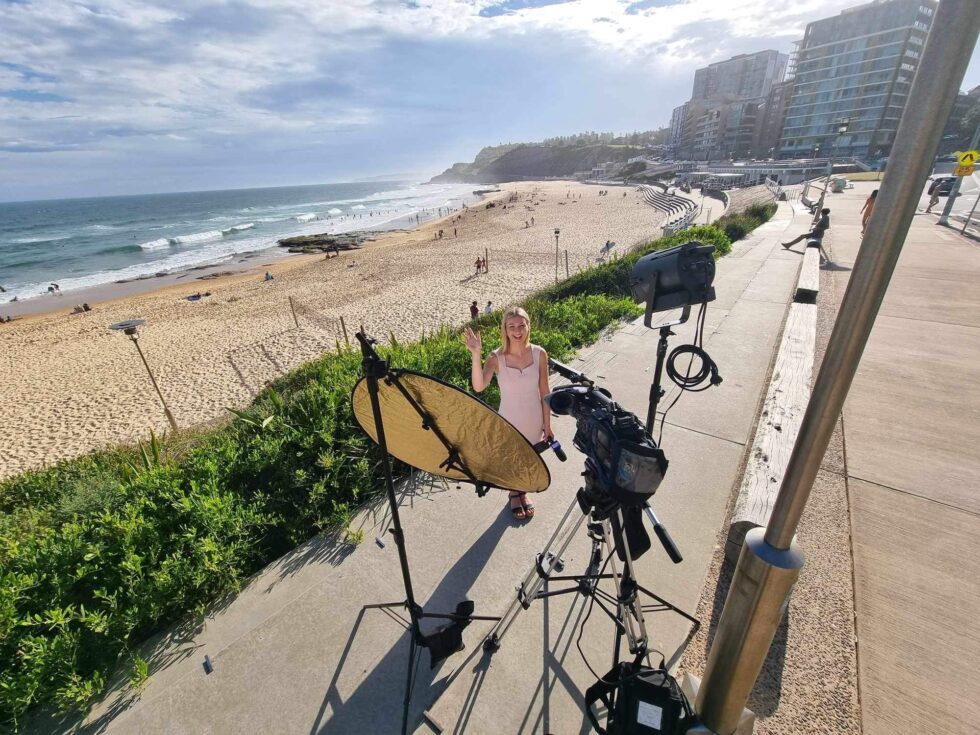Nine’s podcast powerhouse: Penelope Liersch is redefining court reporting
Reporter Penelope Liersch shares her insights on reporting on one of Australia’s most highly documented court cases, the trial of Erin Patterson. The podcast she co-hosts, “The Mushroom Trial: Say Grace”, reached a milestone one million downloads before the verdict. The achievement highlights the dedication she and co-host Erin Pearson (Court Reporter with The Age) have to storytelling that delves far beyond the typical daily news cycle.
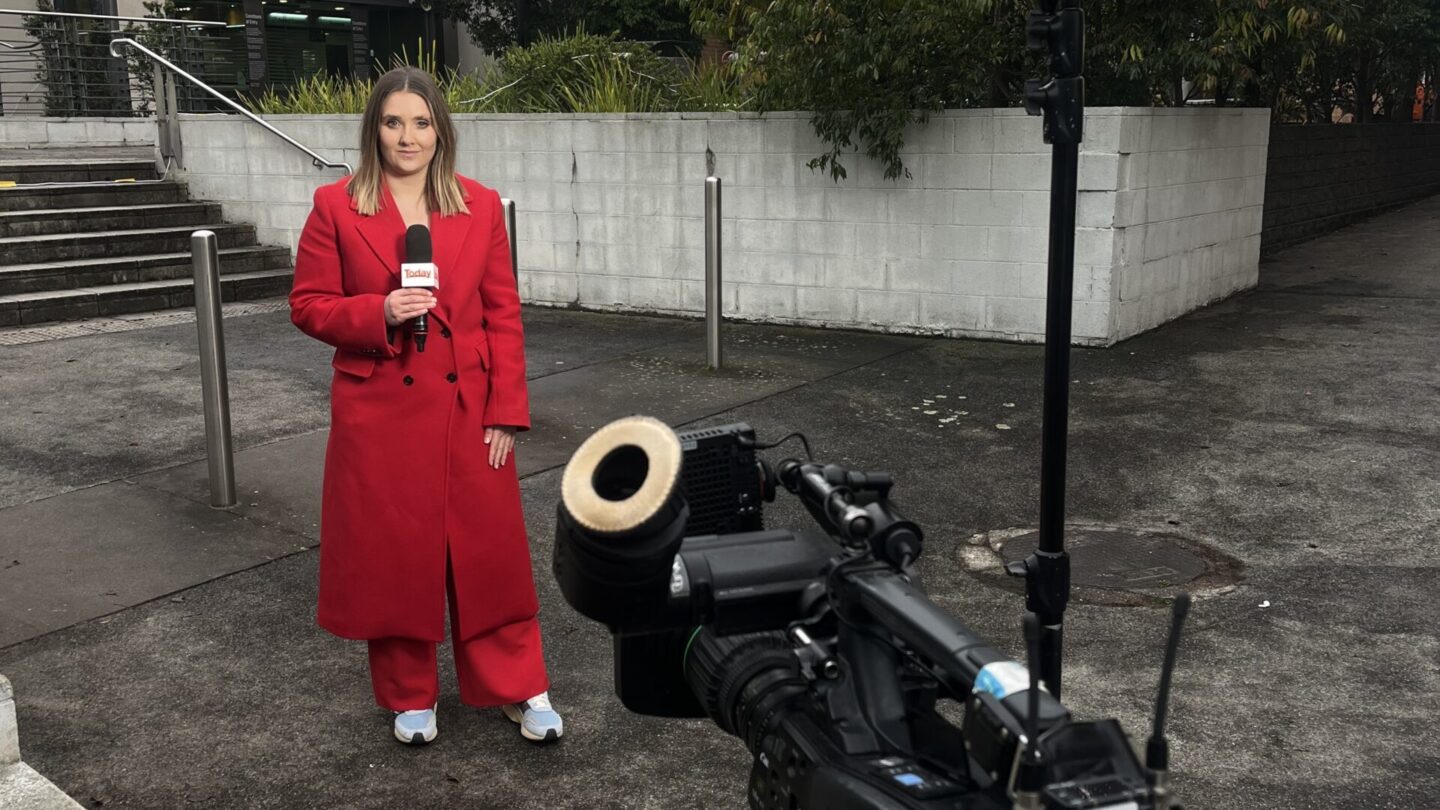
The genesis of an idea: an opportunity for innovation
Penelope’s journey with Nine began in 2015 as a reporter on the Gold Coast, eventually leading her to the Melbourne newsroom after a stint overseas. Following her return to Melbourne in 2022 she took on the demanding position of court reporter. It was during this time, specifically while covering the committal hearing for the missing campers case, that the idea for creating a podcast series struck her.
“I realised through crime reporting that unless you’re in that courtroom everyday, you don’t understand why decisions are the way they are. I’ve always loved podcasts and thought this could be a way to share these stories.” A pioneering concept within Victoria, Penelope’s ‘The Missing Campers Trial’ was a first of its kind podcast series to cover a trial in real time.
Reflecting on the initial idea spark, Penelope shares: “It just all happened in my brain in one night and I knew I had to act on it pretty quickly. Penelope recognised that the intricacies of the legal process, often oversimplified in daily news, could be explored in greater depth through audio. This vision led her to pitch the concept to Hugh Nalen, Nine’s News Director in Melbourne. “Hugh was incredibly supportive. He said I really needed a second voice to talk to, and that’s when Erin came to mind.” No stranger to court reporting, Erin Pearson is Crime & Justice Reporter for The Age and has crossed paths with Penelope on many stories.
“I always knew we’d cover the Mushroom Trial. We’d already launched our podcast and there was a lot of interest in our approach to real-time court reporting in longer format than everyday radio and television content.”
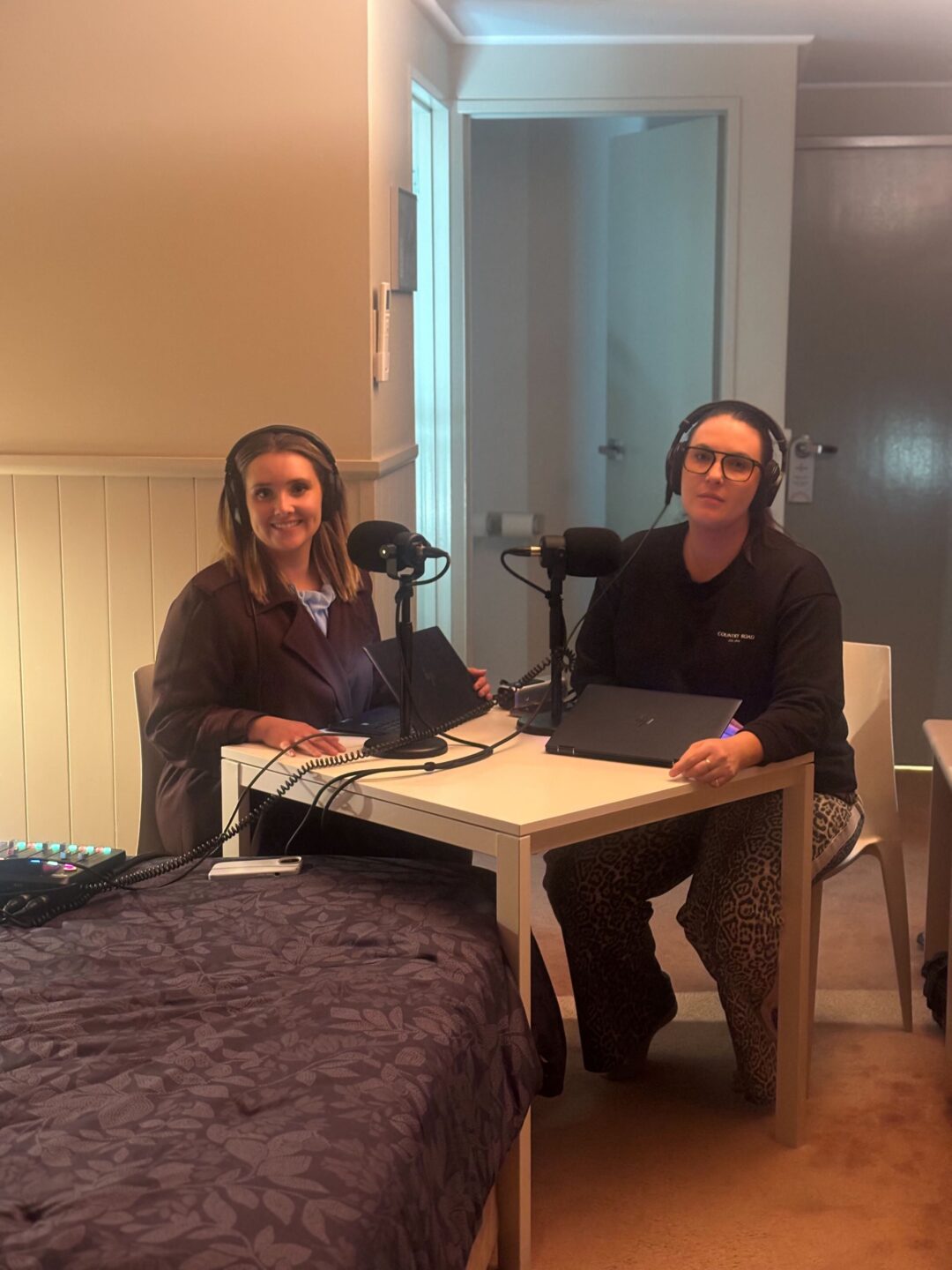
A mobile studio and remote production: the mechanics of real-time reporting
The logistical challenge behind remotely producing a podcast while covering live trials is remarkable. For ‘The Missing Campers Trial’, based in Melbourne, Penelope and Erin utilised the 3AW studios (now designated official podcast studios) to record episodes, typically before court to capture the previous day’s evidence. This was on-top of their existing work duties: Erin reporting for The Age, and Penelope for A Current Affair at the time.
However, the Erin Patterson trial presented a new set of challenges, requiring an even more agile approach given its location in Gippsland. Penelope detailed how their producers, Alasdair Mulligan and then Genevieve Rule, established a remote recording setup at their accommodation, transforming their living space into a functional studio. “We come back and record the episodes after court in the same place we’re staying and our producer Gen is linked in through a program so she can monitor the recording remotely,” Penelope explained. This innovative setup allows Gen to seamlessly receive their audio for editing.
In the courtroom, both Penelope and Erin are meticulously taking notes, not just for their daily news reports, but specifically for the podcast. They work to create a rough order for their discussions, then “deliberately lead into the quotes,” ensuring a cohesive narrative. While Erin is often focused on filing daily reports for The Age, Penelope is simultaneously listening for crucial elements to incorporate into the podcast, which would also help form part of her reporting the next morning for The Today Show. This highly coordinated effort allows them to adapt on the fly; if a faster turnaround is needed, Penelope might focus on building a rundown, a set of talking points for the episode while Erin remains in the courtroom, picking up vital observations. This dynamic workflow, combined with the remote production capabilities, is key to their ability to provide near real-time, in-depth coverage.
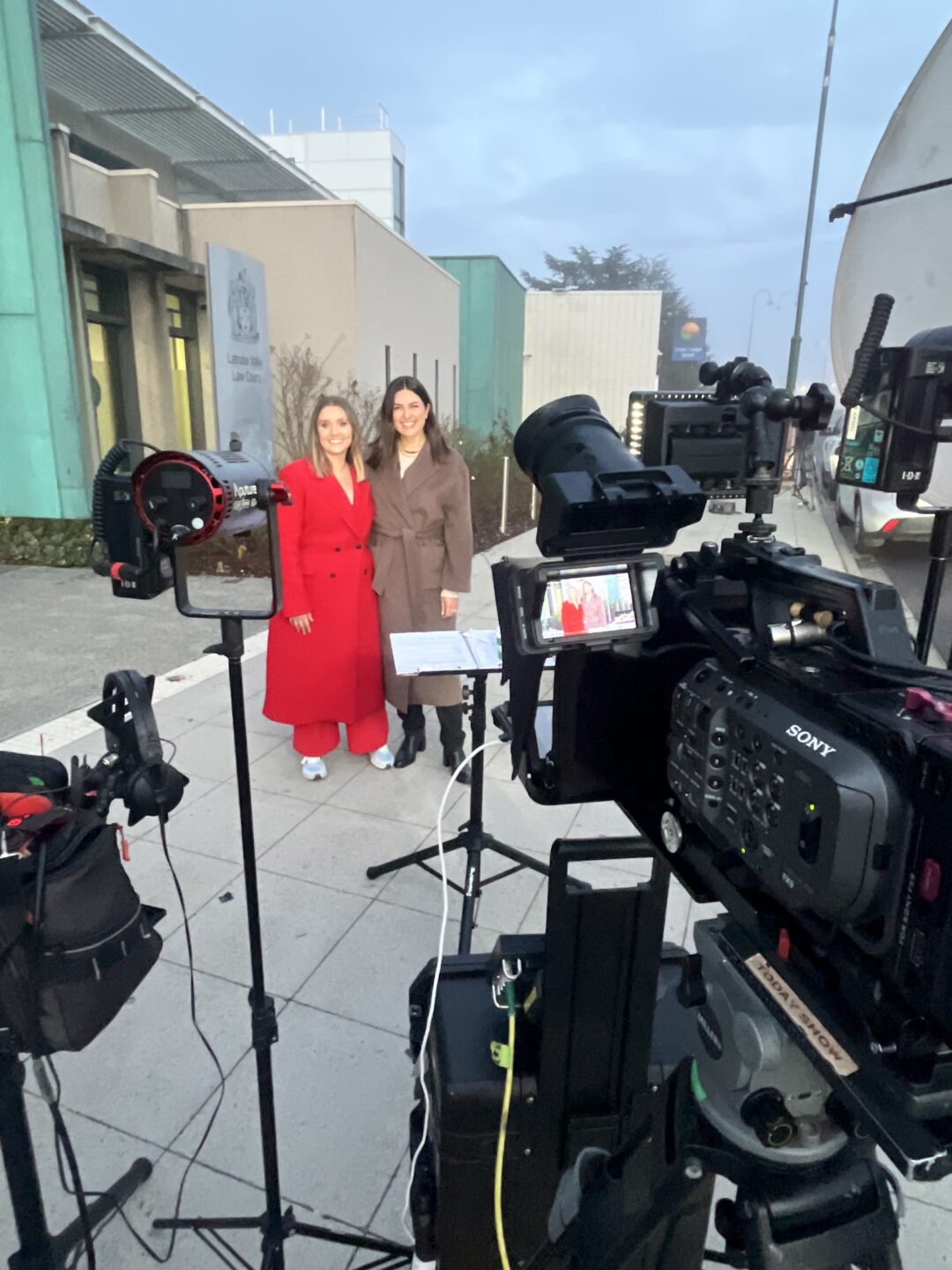
Success through collaboration
Penelope and Erin’s complementary skill sets proved to be a powerful combination. Erin, with her strong background in crime and justice reporting, brought a wealth of expert knowledge, while Penelope’s broader reporting/ broadcast experience and podcast vision provided the perfect match.
The collaboration extends beyond just Penelope and Erin. The podcasts heavily rely on voice actors to bring court transcripts to life, a crucial element given strict rules against recording in Australian courtrooms. The actors are often Nine staff, family, and friends, showcasing the willingness to contribute to these ground breaking projects. The Nine legal team also plays an indispensable role, providing crucial advice to ensure adherence to legal reporting guidelines.
Beyond the headlines: the human element of justice
One of the most profound impacts of the podcast format is its ability to infuse a human element into what can often be perceived as cold and confusing legal proceedings. Nightly TV news bulletins, constrained by time and word limits, can only scratch the surface.
“Daily news reporting and TV bulletins, newspapers, online, they all have limits,” Penelope explained. “There’s only so much you can say.” Podcasts, however, allow for a deeper dive. “Instead of giving you a 3 minute TV package or a front page story, we could go into far more elements from that particular day or that particular week.”
This longer-form approach allows listeners to truly understand the complexities of the Australian legal system, which, as Penelope points out, is vastly different from the often-dramatised American system seen on TV. The podcast illuminates why decisions are made and how the system operates, especially during the most challenging times in people’s lives. By voicing direct quotes and exchanges from the courtroom, listeners gain an unparalleled insight into the evidence presented to jurors, allowing them to grasp the nuances that lead to verdicts. “In the courtroom, it’s back and forth between what’s being questioned and what’s being answered by a witness. You can see it’s not just this one line that they said, like we often read in news reports or see on TV. This is the question they were asked.”
Penelope shared the emotional toll of court reporting, particularly during victim impact statements, which take place after a conviction. “These families, that’s their moment to say this is what this has done to our lives.” She and Erin found themselves deeply affected during the recording of these emotional segments for their first podcast ‘The Missing Campers Trial’.
“Erin and I were openly crying and we found that really difficult and uncomfortable because we’re journalists and we’re not meant to show emotion. We’re meant to be these fair and balanced reporters. Our producers at the time said this is important, people are able to see you as real people.”
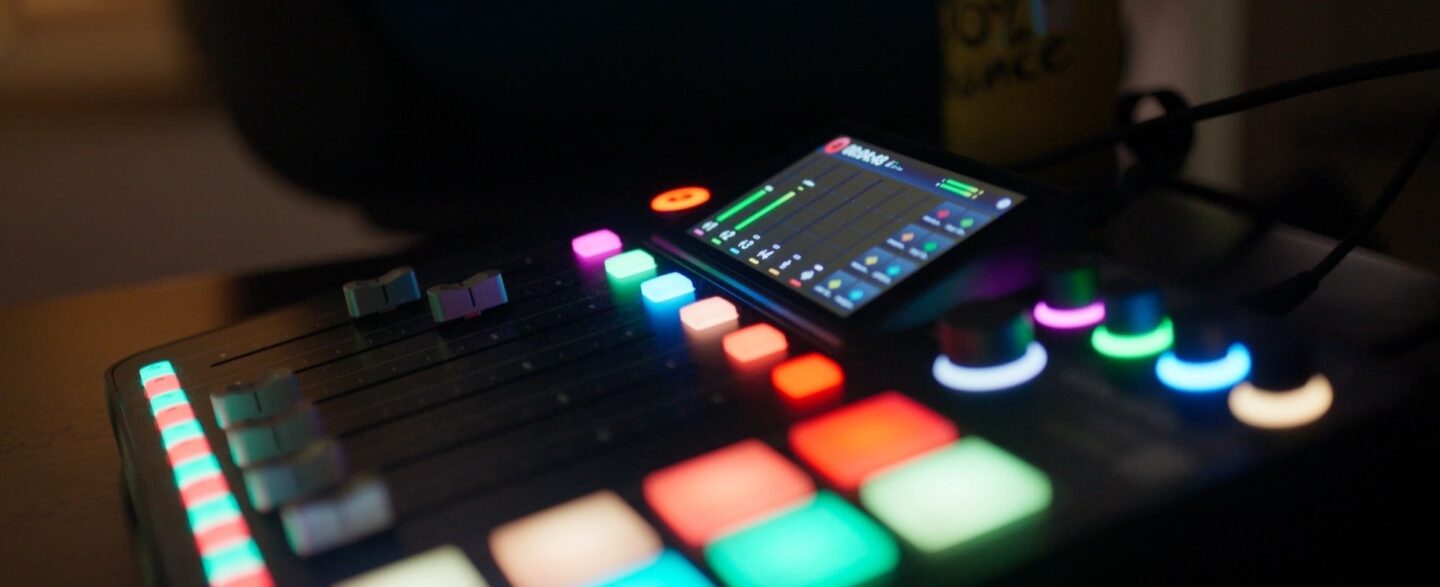
Bringing listeners inside the courtroom
Covering high-profile cases like the Erin Patterson trial comes with immense pressure and scrutiny. The groundbreaking nature of reporting in real-time in Australia means navigating uncharted territory, especially concerning strict media reporting guidelines. Penelope emphasised the importance of caution and accuracy, ensuring no missteps could jeopardise a trial.
Outside the case itself, Penelope shared how she felt about covering a trial with global media attention: “I knew the mushroom trial would be huge and that there would be a lot of media coverage on it, but going into any story, it’s hard to know what that will look like day-to-day. It’s still a little regional town with just a lot of media around it. In other parts of my career, like working overseas and working on the Commonwealth Games I’ve seen international media. But I’ve never seen them in a court situation. It’s quite rare.”
The success of ‘Say Grace’ reaching beyond a million downloads demonstrates considerable interest among audiences for in-depth, expertly reported court content. In an evolving media landscape, Penelope sees the collaboration across Nine’s different platforms (9News, The Age, Nine Podcasts) as a significant strength. “That we can combine different expertise from across the business couldn’t be more important – we’re not people working in different media organisations. The fact that we have this opportunity – it’s a massive strength we need to take advantage of,” she remarked.
The Missing Campers Trial and Say Grace have amassed a solid following and set the foundations in evolving the way that journalists can reach their audiences. The success of both podcasts is a testament to the collaborative culture within Nine and the powerful nature of real-time reporting in long-form format.
Say Grace is available now, wherever you get your podcasts.
The Missing Campers Trial is available now, wherever you get your podcasts.
